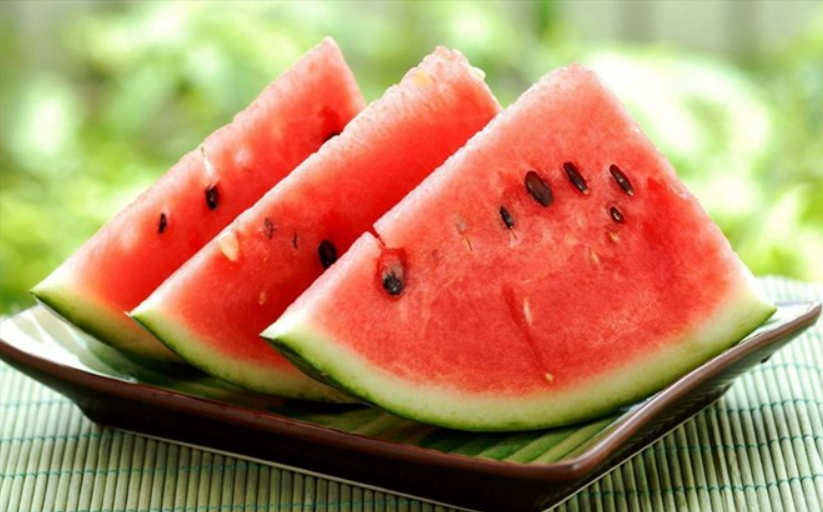Watermelon is not only delicious and refreshing, but it also boasts an impressive range of health benefits. Here’s a closer look at some of the ways in which this fruit can enhance your well-being:
Hydration Helper:
Consuming foods with a high water content can provide your body with the fluids it needs to function optimally. Watermelon, composed of 92% water, is an excellent choice for staying hydrated during hot summer days.
Skin Savior:
Watermelon benefits both your body and your skin. Its high water content helps maintain skin elasticity and promotes healthy, glowing skin. Rich in vitamin C, watermelon boosts collagen production, enhancing skin elasticity, and increasing blood flow to the skin, thereby combating signs of aging. Additionally, watermelon contains vitamins A and B6, which help keep skin soft, supple, and resilient. Vitamin A aids in skin cell regeneration and prevents dryness, while vitamin B6 helps combat acne.
Heart Health Hero:
The high lycopene content in watermelon promotes cardiovascular health. This fruit also contains citrulline, an important amino acid that stimulates the production of nitric oxide, which regulates blood pressure and enhances blood flow. According to a 2012 medical study published in the Journal of Hypertension, L-citrulline and L-arginine, two of the antioxidants found in watermelon, can improve arterial function.

Immunity Booster:
Watermelon is packed with vitamin C (ascorbic acid), which supports the immune system, helping your body fight off bacteria and infections. Vitamin C may also reduce the risk of cancer.
Muscle Soother:
This fruit is rich in electrolytes and the amino acid citrulline, which helps alleviate muscle soreness after intense workouts. According to an Iranian study, citrulline in watermelon can reduce muscle fatigue. Additionally, watermelon’s potassium content is essential for regulating muscle function, vascular dilation, preventing muscle cramps, and maintaining healthy blood pressure.
Vision Enhancer:
The compound lycopene in watermelon is beneficial for eye health. It may help prevent age-related macular degeneration. Watermelon is also a good source of vitamin A, essential for maintaining healthy vision.
While watermelon offers numerous health benefits, it’s important to consume it in moderation and at the right times. Here are some tips to ensure you enjoy watermelon without any negative consequences:
Avoid Overeating Watermelon:
According to Livestrong, watermelon is rich in the antioxidant lycopene. Excessive consumption of lycopene can lead to digestive issues such as bloating, gas, nausea, and vomiting.
Additionally, watermelon contains high levels of potassium. While potassium is beneficial for heart health, excessive amounts can interfere with the central nervous system and heart rhythm, potentially leading to heart attacks.
Skip Watermelon After Dark:
Digestion tends to slow down in the evening. It’s best to avoid sugary and acidic foods late at night. Watermelon, being high in natural sugars, can be unfriendly to your digestive system and contribute to weight gain when consumed after dark.
Moreover, the high water content in watermelon may interrupt your sleep due to frequent bathroom breaks, resulting in sleep deprivation and fatigue the next day.
While chilled watermelon is refreshing, consuming it straight from the refrigerator is not advisable. Eating very cold watermelon can upset your stomach and lead to abdominal distension, indigestion, and even diarrhea. Therefore, it’s best to enjoy watermelon in moderation and at room temperature.


































